I know this will be so hard to say even if you’ve actually tested positive for HIV. No one will want to go about disclosing their HIV-positive status to others unless for HIV sensitization (to educate people about living with the virus and prevent transmission). Others who are looking to be HIV/AIDS ambassadors for the greater good of giving people a reason to be hopeful and to combat the stigma and discrimination faced by people living with the virus may choose to disclose their HIV status to the public.
People freak out when HIV/AIDS is brought up in conversations as if it is the worst thing that can befall anybody. People are scared to go for HIV tests because they’d rather not be in the know about their status. They can’t stand the thought of it so they’d rather pretend it doesn’t exist and that is so messed up. More like, “ignorance is bliss” and “what you don’t know can’t kill you.” It is the reason why there are too many people living with the virus and they keep passing it on others and their unborn babies unknowingly. It’s the major reason behind AIDS-related deaths because if you do not know your status, how do you prevent the virus from advancing into AIDS?
Though the Human Immunodeficiency Virus (HIV) is said to be one of the most serious health challenges in the world and it is still incurable, it is manageable and can be effectively controlled. Having HIV shouldn’t mean the end of the road considering the fact that it hasn’t advanced to AIDS which screams death and pain.
Medics and scientists have made it possible for people to live healthily and longer even with HIV. All they have to do is know their status and undergo treatment as soon as possible. It’s as simple as that. You just need to walk into a good hospital and the drugs will be administered to you.
HIV and AIDS
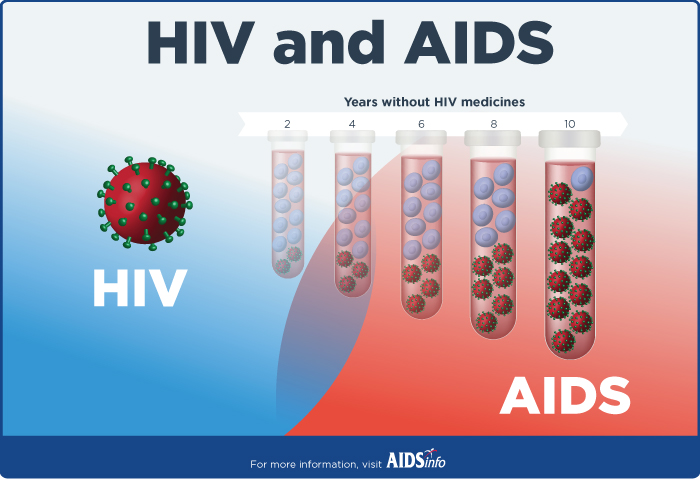
HIV and AIDS are not the same thing. HIV is the virus that may cause an infection and AIDS is a disease that develops because of a serious damage to the immune system (the body’s defense system) because of an HIV infection that was left untreated.
There are three stages of HIV when left untreated:
• Stage 1/HIV-1 (Acute or Primary HIV infection)
This occurs and lasts 2 to 4 weeks after infection and some people notice flu-like symptoms that usually gives no clue that they might have the infection. Others do not notice any symptoms at all. It is a highly infectious stage because the virus multiplies rapidly causing for the blood to be filled with a whole lot. Other people get infected easily on the least exposure.
• Stage 2/HIV-2 (Clinical latency or inactive/dormant HIV)
This stage lasts 10 years or more. It’s the point where though HIV is present in the blood, it doesn’t reproduce rapidly and there is usually no symptoms detected depending on the strength of the immune system. If the viral load isn’t suppressed by drugs or treatment, the infection will progress into Stage 3.
• Stage 3/AIDS (Acquired Immunodeficiency Syndrome)
This is the fatal stage that lasts a maximum of 3 years before death. At this point, the person has a severely damaged immune system that makes it impossible for the body to fight infections. They keep falling sick and experience excessive weight loss. AIDS kills!
It is the duty of everyone living with HIV to make sure they undergo treatment to prevent the virus from advancing into AIDS. It is the only way they can live longer and healthily.
TESTING FOR HIV
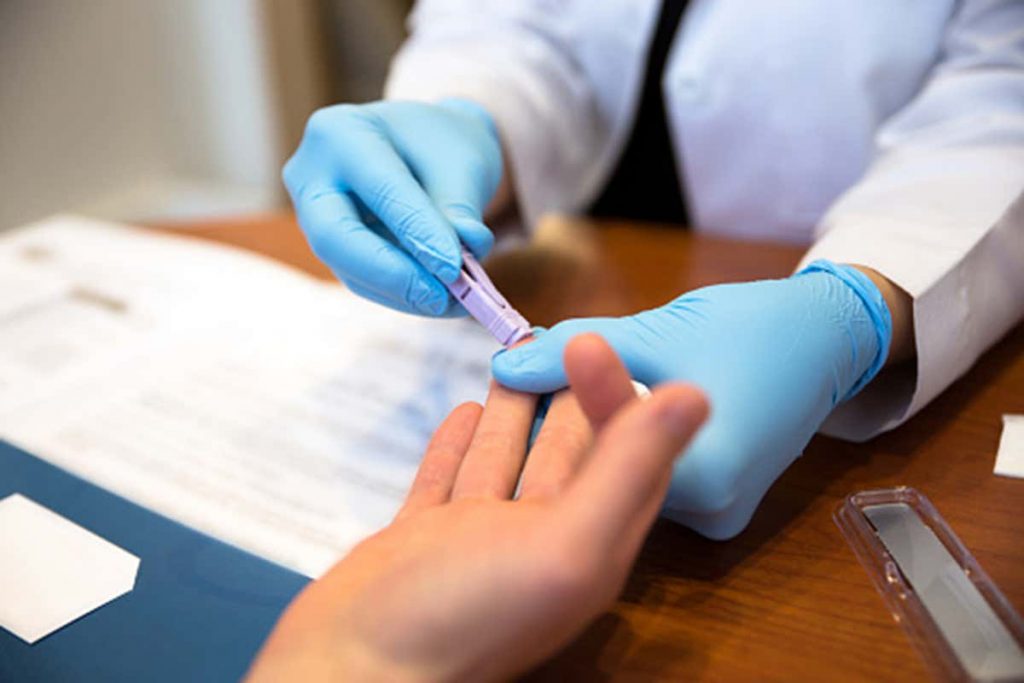
I remember the first time I got tested. I was terrified as hell and I recounted the times I was reckless enough to have unprotected sex with men whose sexual history I knew nothing about. I’d read a lot and was at a HIV seminar, so there was a whole lot I knew about living with the virus. I knew it wasn’t a death sentence and I met a couple living healthily with HIV. They had kids who were HIV negative and listening to them tell their story changed my perception about HIV/AIDS entirely. I learnt a lot that day and it gave me so much confidence to go and get tested.
I had to decide what I would do if I tested positive and though that was hard, I made plans. I decided it would mean that my partner at the time was also HIV positive because he was the only one I was sleeping with and I didn’t care about finding out who exactly infected me. I just decided I would find a way of letting him know or I would just be with him and suggest to him to also get tested, so we live together as an HIV positive couple. All that was in my head.
I decided I would undergo treatment as soon as possible. I knew Antiretrovial Therapy was free and I just had to go to the school clinic for the drugs and it wasn’t going to be hard to do. I decided I would take good care of myself and work hard to get where I wanted to get to and not let the suppressed viral load (the HIV) get in the way of that. I decided I wasn’t going to tell my family but I would take precaution to prevent passing it on to any of my siblings and parents.
I was ready for whatever outcome I was going to meet and after that first time, I’ve lost count of the number of times I have gotten tested. For someone who’s still scared of needles, that is a huge deal.
WHAT TO DO AFTER TESTING POSITIVE
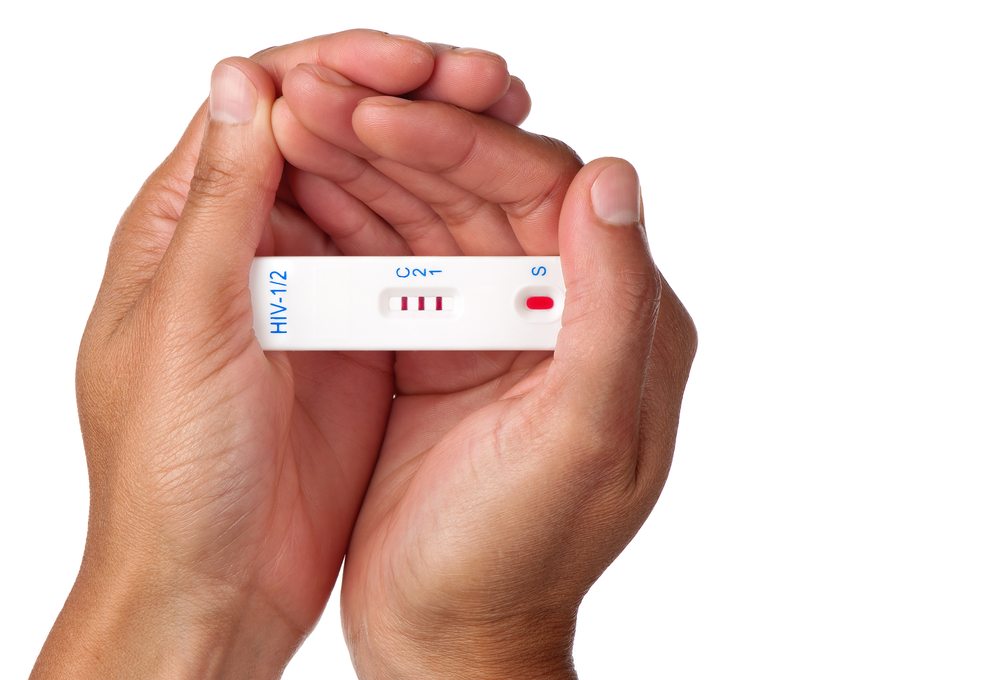
First thing, you need a hug. I hope whoever took the test counseled you before and after telling you the results. It’s a prerequisite for anyone taking the HIV test to undergo counseling in order to not do the unthinkable if the result comes out positive.
So now that you know you have HIV, you need to begin treatment right away. You should come to terms with the fact that Antiretroviral Therapy (ART) is a lifelong treatment and once you start, there’s no going back. You will have to take the drugs daily and you will be alright. Deciding to pause treatment along the way might just induce drug resistance and increases chances of you transmitting a new virus that is resistant to Antiretroviral Therapy (ART) to others. You will have to be devoted and not give up along the way
In Ghana and some other countries, HIV treatment (ART) is free, so you need to start treatment as soon as possible. Go to any good hospital or any PPAG (Planned Parenthood Association of Ghana) clinic, get counselled, start treatment and go for checkups to test the effectiveness of the treatment.
WHAT I WOULD DO
I would go to a hospital that isn’t in or close to my neighborhood. PPAG clinic is in Laterbiokorshie and isn’t hard to find, so I would go there for treatment because I wouldn’t want to meet anyone who knows someone I know. People easily run their mouths and the next minute, the whole world will know you have HIV.
INFORMING OTHERS
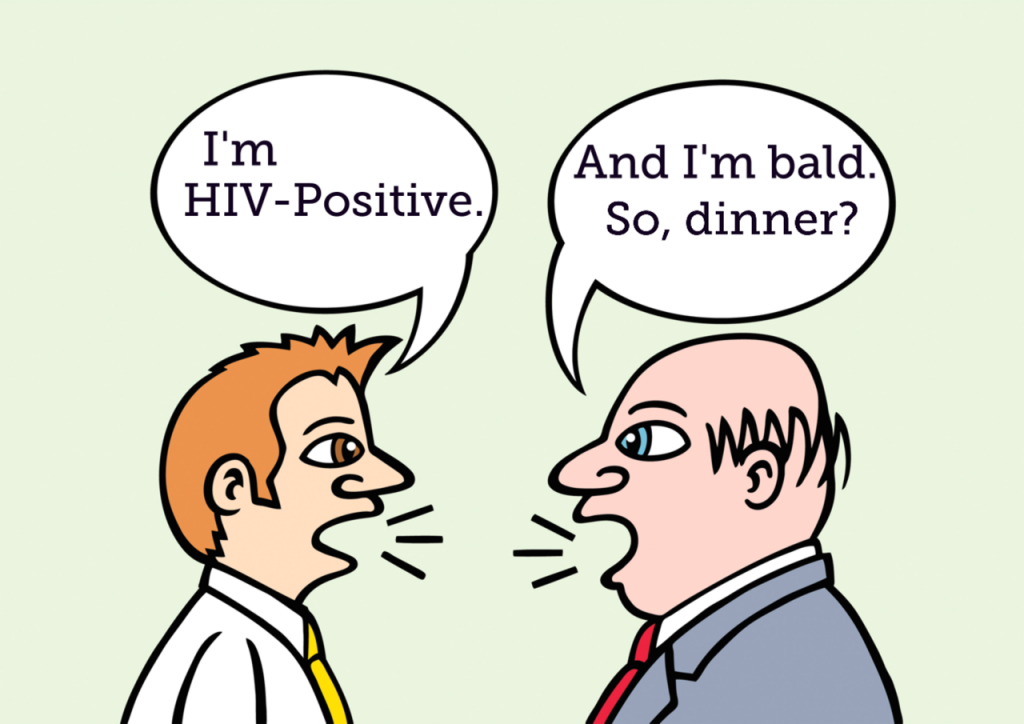
You need to let your sexual partner(s) know so that they can also get tested and start treatment. This is to control transmission and help them live healthily too. If you aren’t with them or you were with a couple of people who could have the virus, you need to let them know. If you’ve used needles and other sharp objects with people, they need to know too.
HOW?
I wouldn’t want to be the one telling my partner or former partners that they might be HIV positive. What I would do and what can be done is this: let the doctor or health care provider have their contacts and he or she will relay the information to them. They will be told to go and get tested because of a tip that they’ve been exposed to the virus and they will be counselled alongside. Guess what? Your name won’t be mentioned.
Also, though HIV is a very personal ailment and you shouldn’t feel compelled to disclose your positive status to anyone, it is safe to inform a trusted family member if you have any. They will be there for the emotional or social support you might need.
NEW SEXUAL PARTNERS

As someone living with HIV, you can’t go about having sex with just anybody because you might infect them. Even if you decide to use a condom, condoms still get broken, so it is required for you to be very careful and whoever you decide to be with needs to know your status. If after counseling, they decide to still be with you, fine. If not, let them go.
HIV/AIDS LAWS
In Ghana and several other countries in the world, there are laws and policies that affect HIV-related services and rights
NOTE:
• It is a crime to infect somebody else with the virus if you already know your status
• It is a crime to disclose a person’s HIV status to a third party
• A health care provider or doctor or lab technician who tested you and knows your status isn’t authorized in any way to disclose your HIV status to others
• Whoever faces discrimination because of their HIV status can take legal action because it is also a crime.
• Willful transmission of HIV is also a crime. Some people just decide to infect others when they test positive out of spite and anger. Doing that will get you locked up
• According to the Ghana AIDS Commission Act, you shouldn’t lose your job because of your HIV status. Employers are prohibited from terminating your employment and they can’t also deny you employment because you have HIV.
• Though drug-use, sex work and same-sex intercourse are still illegal in Ghana, laws prohibit health care providers from telling on people who were infected via those means. They are supposed to be tended to and they should receive free treatment and counselling like every other person living with the virus
POST-EXPOSURE PROPHYLAXIS (PEP)

Anyone who may have been exposed to HIV needs to be administered post-exposure prophylaxis (a short course of antiretroviral medicines) that is started within 72 hours after exposure to prevent infection. The drugs are taken continuously for 28 to 40 days.
People who can be administered PEP (in Ghana and other countries) include:
• All victims of sexual abuse
• People involved in accidents
• Lab technicians or health care providers (doctors and nurses included)
PEP is just like emergency contraceptives or morning-after pills (Postinor 2 and the others) that are taken right after unprotected sex to prevent pregnancy. Just like the emergency contraceptives, PEP isn’t 100% effective (over 80% effective) at preventing HIV infection. The earlier the better and every hour counts.
Though PEP is only used in emergency situations, other countries make it possible for people who’ve been exposed to the virus via sex (raw sex or condom breaking) or needle sharing to be administered the drug to prevent infection. I wish that was possible in Ghana.
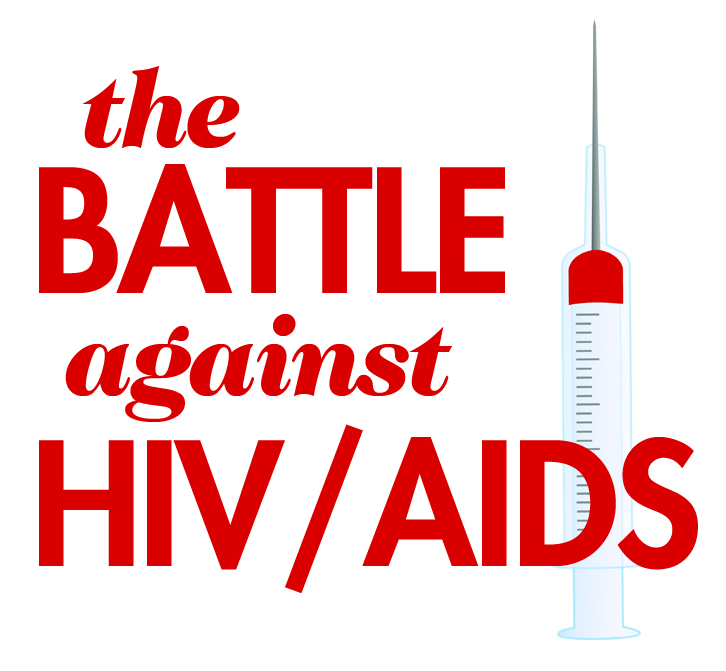
Whether you’ve tested positive or not, this is useful information and it should give you every reason to go and get tested. For those of you who have the virus, start treatment like I said, live and enjoy life, do all you can to prevent transmission to others and stay devoted to Antiretroviral Therapy. You will be alright!
Once again, HIV doesn’t kill. AIDS does. Don’t wait for your virus to progress into AIDS before wishing you’d gone for treatment. We only live once! Don’t risk it!
Also, cancer, stroke, diabetes, viral hepatitis and other ailments kill faster than HIV/AIDS. Stay informed and do not stigmatize or discriminate against people living with HIV.
Hit me up with any questions or enquiries you have in the comments or via email and I will reply shortly.

















Very detailed 👌, well done Ami 👍
Thank you!!
So do you have one partner or what?
And how do you get head now?
I'm hiv negative b